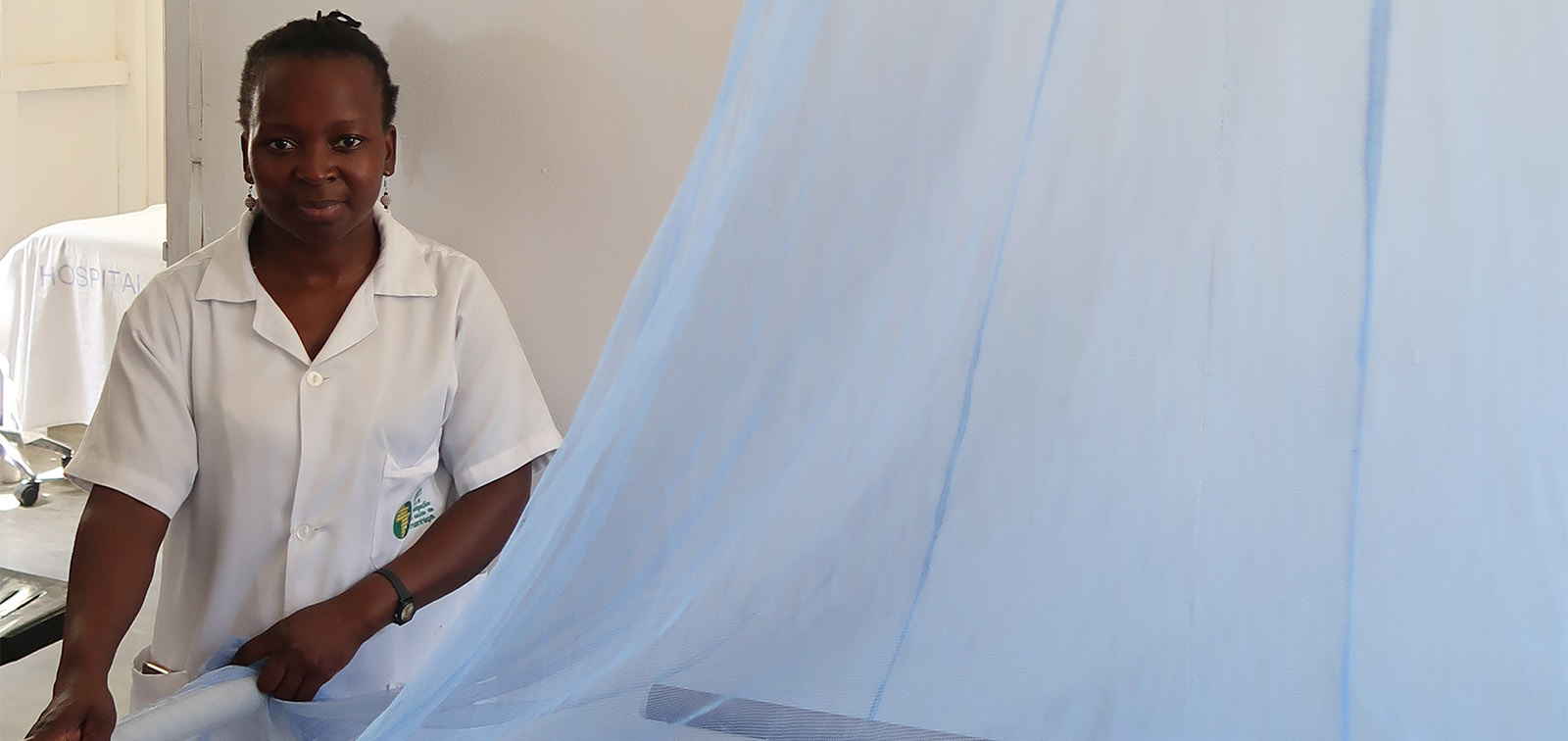COVID-19 Crisis Could Lead to Doubling of Malaria Cases in Sub-Saharan Africa
In World Malaria Day, WHO urges countries to sustain action against malaria and save lives
24.04.2020
The 2020 World Malaria Day –celebrated on April 25th– takes place as malaria endemic countries prepare for the upsurge of COVID-19. Lessons learned from previous epidemics in Africa such as Ebola, and predictions of the potential impact on malaria resulting from disruptions in the health systems due to the new disease, have led to serious warning about the importance of maintaining malaria services despite the pandemic. The World Health Organization (WHO) has issued a statement urging countries to “move fast and distribute malaria prevention and treatment tools at this stage of the COVID-19 outbreak in sub-Saharan Africa, and to do their utmost to safely maintain these essential malaria control services”.
According to a new modelling analysis released by WHO and partners, “severe disruptions to insecticide-treated net campaigns and in access to antimalarial medicines could lead to a doubling in the number of malaria deaths in sub-Saharan Africa this year compared to 2018”
The analysis considers nine scenarios for potential disruptions in access to core malaria control tools during the pandemic in 41 countries, and the resulting increases that may be seen in cases and deaths. Under the worst-case scenario, in which all insecticide-treated net (ITN) campaigns are suspended and there is a 75% reduction in access to effective antimalarial medicines, the estimated tally of malaria deaths in sub-Saharan Africa in 2020 would reach 769,000, twice the number of deaths reported in the region in 2018. This would represent a return to malaria mortality levels last seen 20 years ago.
According to the World Malaria Report 2019, sub-Saharan Africa accounted for approximately 93% of all malaria cases and 94% of deaths in 2018. More than two-thirds of deaths were among children under the age of five. These are the numbers in the context of prevention with mosquito control measures and prophylactic drugs given to the most at risk populations, and the feasibility of effective treatment.
Although significant progress has been made against malaria thanks to the scaling up of prevention and control, many African countries have weak health systems that were already challenged before the outbreak of COVID-19. As of April 23rd, 2020, 16,430 COVID-19 cases had been confirmed in 45 countries of the WHO African region. These numbers represent a small proportion of the global total, which —according to WHO— means that “countries across the region have a critical window of opportunity to minimize disruptions in malaria prevention and treatment and save lives at this stage of the COVID-19 outbreak”.
WHO has published technical guidelines to assist countries to ensure the continuity of malaria services in the context of COVID-19. This document recommends that malaria endemic countries encourage populations to seek medical care as soon as fever emerges (despite fever is also one of the key symptoms of COVID-19) and continue provision of malaria control interventions. Recommendations include strategies to minimize the risk of contagion, by avoiding large gathering of people during distribution of bed nets and protecting health staff at the community and facility levels. Effective prevention of malaria would directly reduce the number of cases and decrease pressure on health systems that are already envisaged to be overwhelmed if the COVID-19 cases raise.
“This is a clarion call from WHO to countries and all partners, including funders, for immediate action, to sustain control of malaria in the context of the pandemic, and is one immediate opportunity to lessen the impact of the pandemic. Only the countries, supported by WHO and partners, can act to sustain the gains”, said Regina Rabinovich, director of the Malaria Elimination Initiative at ISGlobal.



